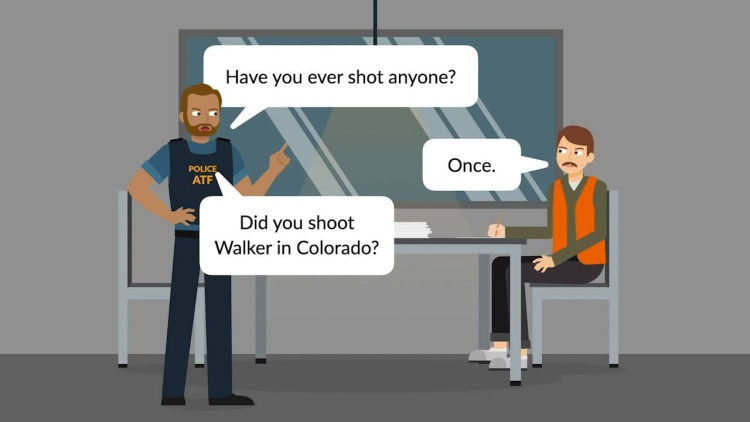Colorado v. Spring
United States Supreme Court
479 U.S. 564 (1987)

- Written by Sean Carroll, JD
Facts
Agents of the Bureau of Alcohol, Tobacco, Firearms and Explosives received a tip that Spring (defendant) was illegally selling firearms and that he was involved in a murder. An agent set up a sting and purchased firearms from Spring. After federal agents arrested Spring, they read him his Miranda rights, and he signed a written waiver. They asked him about the firearms deal and then asked Spring whether he had ever shot anyone. He stated that he had “shot [a] guy once.” Subsequently, federal agents questioned Spring again, and during this questioning, he confessed to the murder. The trial court convicted Spring. The Colorado Supreme Court reversed, finding that the agents’ reading of the Miranda rights was invalid because they did not tell Spring the scope of the upcoming questioning. Specifically, the agents did not tell Spring that they would be asking him about whether he shot someone. The result, according to the Colorado Supreme Court, was that the subsequent confession was inadmissible. The United States Supreme Court granted certiorari.
Rule of Law
Issue
Holding and Reasoning (Powell, J.)
Dissent (Marshall, J.)
What to do next…
Here's why 907,000 law students have relied on our case briefs:
- Written by law professors and practitioners, not other law students. 47,100 briefs, keyed to 996 casebooks. Top-notch customer support.
- The right amount of information, includes the facts, issues, rule of law, holding and reasoning, and any concurrences and dissents.
- Access in your classes, works on your mobile and tablet. Massive library of related video lessons and high quality multiple-choice questions.
- Easy to use, uniform format for every case brief. Written in plain English, not in legalese. Our briefs summarize and simplify; they don’t just repeat the court’s language.





